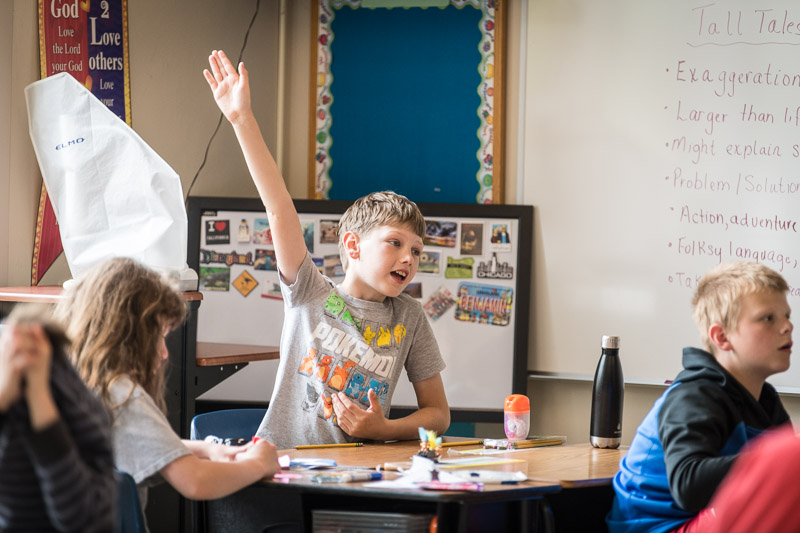 Philosophy
Philosophy
Since communication and language are basic life skills, they also serve as a foundation for a student’s success in school and a preparation for a productive and meaningful life in the community. Developmentally appropriate instruction must also include opportunities to encourage independent and life-long learning skills.
Because sharing the Gospel is central to a life of discipleship, it is only logical that communication skills, written, verbal and non-verbal, are also an integral part of any Christian curriculum.
Program Standards
- Be able to use the quality process to communicate clearly, precisely, and briefly.
- Be able to read fluently, efficiently, and with understanding for a wide variety of purposes, including technical reading.
- Be able to speak with skill for a wide variety of purposes, including technical presentations, and to a wide variety of audiences.
- Be able to listen/view with skill for a wide variety of purposes, including technical.
- Be able to apply higher order thinking and technical process skills to the communications process.
- Be able to relate literature to oneself as a Christian and appreciate literature which represents many viewpoints (gender, culture, race, ethnic background).
- Be able to conduct media and technology-based research to support writing and speaking.
